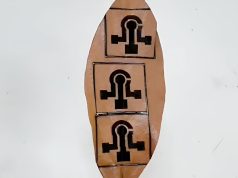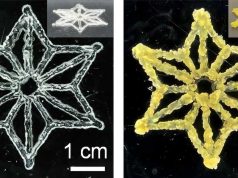Researchers at ZAL GmbH in Hamburg are working on optimizing the 3D printing process Fused Filament Fabrication (FFF) for processing metal-plastic mixtures. In particular, this involves the production of lightweight components containing titanium. One challenge is the softness of the filaments used.
According to ZAL, material deformation and cracks often occur with conventional FFF printers. This is due to the incompatibility of the abrasive metal parts with the hard plastic feed wheels. The filaments are subjected to high stress, which impairs the dimensional accuracy and density of the printed green parts.
As a solution, ZAL developed special rubber feed rollers. These exert a uniform contact pressure on the filaments without damaging them through friction. According to the researchers, this allows significantly higher extrusion pressures to be achieved. The material feed is more stable, which increases part quality.
The rubber roller concept makes it possible to process metal-plastic mixtures without coating. After 3D printing, the green parts are debinded and sintered to achieve the desired metallic properties. According to ZAL, this process significantly reduces costs compared to conventional metal 3D printing processes.
The Hamburg researchers see great potential for integrating the new rubber rollers into other FFF printers. This could further simplify and reduce the cost of additive manufacturing of metal components for lightweight construction.
Subscribe to our Newsletter
3DPresso is a weekly newsletter that links to the most exciting global stories from the 3D printing and additive manufacturing industry.






















